
My guest for today is a talented artist and the heiress to an incredibly rich family background and history. Both Zaina’s grandfathers held important positions in Government. from her father’s side, Zaina is the great-granddaughter of Iraq’s monarchy Premier Nuri Pasha Al Said, whose memory is cherished by many Iraqis who yearn for Iraq’s golden era in modern history. Her maternal grandfather is Jordanian army General Fawaz Pasha Maher Bermamet who is of Circassian origin. Zaina studied business administration before her penchant for art took over as she decided to pursue her creativity professionally.
Zaina’s work is an amalgamation of her roots and the fairy tales and stories she grew up with, where different cultures and melodies interact, triggering a unique sensation whenever you admire any of her collages.
My guest for today is full of grace and magic. Zaina, thank you so much for joining me today.
So you come from a family of political, but also artistic personalities. You also mentioned that both of your uncles were artists. Your mom was a designer, your sister is a fashion designer. How did that interesting mix affect who you turned out to be as a person?
The atmosphere I grew up in was a mixture berween artistic talent and military culture. My grandfather was a military, like you mentioned. And it was like this combination of a strict military tribal atmosphere as well as an artistic atmosphere. So it kind of evolved into this interesting mixture that pushed me to become as an artist.
Carrying such an important family heritage must give you a great sense of pride. But how did you deal growing up with the more tragic side of your family’s history? With the coup that happened in Iraq in 1958 that took away the monarchy and everyone that was remotely connected to it. The tragic death of the king and the tragic death of your great-grandfather. Many Iraqis tell the story with a broken heart. I cannot imagine how it must be when you are directly a descendant of that history..
We grew up, my siblings and I, aware of what has happened to my great-grandfather and my grandfather and the whole story from a very early age. But as a child you don't really realise the magnitude of the damage. My grandmother who was still alive up until I was 20, often spoke about the massacre and what has happened to the family. Of course, it did affect us and we always asked wondered why? Were they so terrible to deserve such a horrible fate? And regardless, no matter how horrible a person can be, at the end of the day no one deserves to be killed in such a way. But my father actually never spoke about it. My father, moved to England and later Jordan after the the coup happened. Even when asked he refused to speak about it. My uncle, on the other hand, Issam Al Said, it was very vivid with him up until he passed away. And you can see that it affected him so much that all of his artwork was about Iraq and the beauty of Iraq. He tried to sustain this image of the beautiful Iraq. But it affected him deeply.
You also have a very strong Circassian heritage, from your father’s side and mother’s. The influence of your Circassian roots is very present and palpable in your work. So growing up with all of these different cultures, do you feel that there was a culture that had more of an effect on you than another?
Yes, definitely. Because my father passed away at a young age and we grew up in Jordan with my mother’s side of the family, who were pure Circassian, and we lived with my grandfather from my mother’s side who was a tribal leader, and head of the Circassian Association and the Tribal Council. So Circassian culture was the dominant culture growing up. Circassians themselves have also dealt with a tragedy where they migrated from the Caucasus after the Russian-Circassian Wars in the late 18 hundreds, early 19 hundreds. They also have their side of the tragedy, which in a way, you become aware of and connected to. My grandparents used to always talk about the Caucasus, what it was like, and what sort of people they are because it’s very different from the Middle East region. The North Caucasian culture is very ancient and they have extremely different traditions and a different language as well. So they often spoke about the culture, the mythology, folk tales, and we were constantly exposed to it, hence my interest. And it developed and evolved and it crept into my artwork as well because everything that I have learned started expressing itself in the artwork.
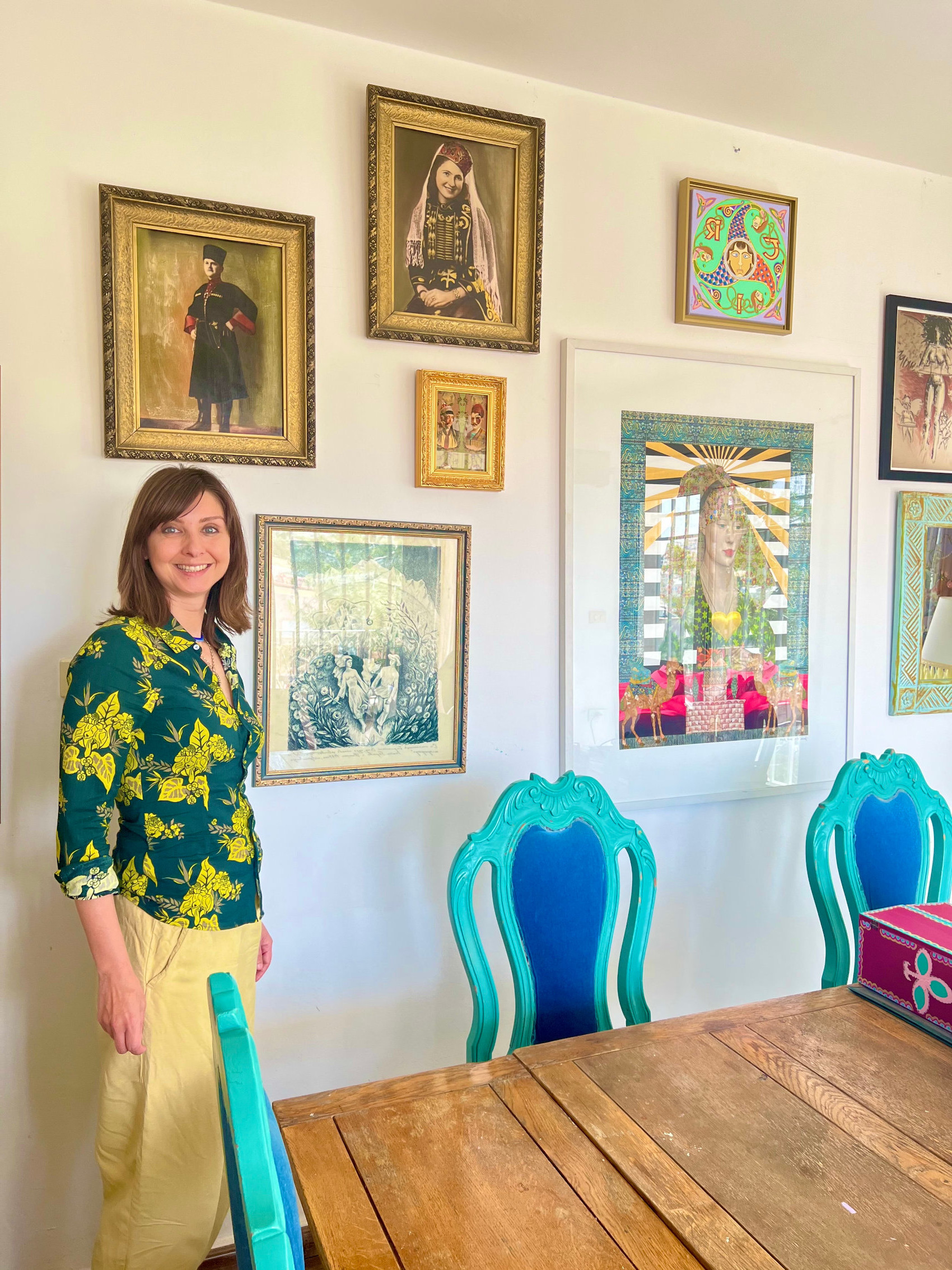
![]() I think I’m an extension of my family, my father, my grandparents, and my heritage. This is what I think defines you in a way
I think I’m an extension of my family, my father, my grandparents, and my heritage. This is what I think defines you in a way ![]()
You kept all of these different identities and carried them with you. The next question I want to ask you now, we’re sitting here in your beautiful home in Amman looking around it’s colorful, it’s vibrant, it’s full of character. It looks like the works that you so beautifully create. Who is Zaina?
Interesting question. I think I’m an extension of my family, my father, my grandparents, and my heritage. This is what I think defines you in a way. It’s a difficult question, I think I’m a compilation of all my family, like bits and pieces from my parents, ancestors etc. I always looked up to the elders of the family and I was always interested in what they had to say and I was inspired by them. My belief system, my ethics and code of conduct, was all inspired by the the elders of the family.
Looking at your work Zaina, we find unexpected characters. I’m thinking of the picture of the two kings king Hussein of Jordan and King Faisal II of Iraq sitting next to each other, or Elizabeth Taylor, Sophia Lauren or Caucasian figures. So it’s really a mix, I read in one of your interviews that you don’t decide to include them, they just appear. Can you tell us about that?
Well, basically with my artwork as you may have noticed, I try to avoid anything that is realistic. It’s more like I rely on imagination. I think imagination is the basis of everything. Like I don’t think there’s anything in this world that was not imagined first, before it was actually created. Even this chair, this cup of coffee. It was an image in the head. Everything existed, theoretically. So the material we see is just a byproduct of imagination. I believe that all of this is just a byproduct and the main power is in the imagination. So I let loose when I’m doing my artwork and I try to mimic the dreamlike process and let it lead the way, like completely freely. So I would find a nice character and I let things naturally flow from there: All the elements flow, as if the character decides this, and whatever pops up in my head, I just add it and then the work is somehow complete.
Zaina, you were not an artist from the start. You studied business administration and you worked different jobs, working for the EU, working as a writer, as well as an editor for magazines. So you did this for about 10 years before you decided to become a full-time artist. Can you tell us a bit more about that?
It was a coincidence actually. I always wanted to be an artist as a child, but I dropped the idea as I grew up. And when you graduate from school and you go into university, you don’t really know what you want to do. At 17, my friends were doing business administration. I thought, okay, I’ll just do that with them. And this is how it started. So it was years after graduation that I joined my late uncle Issam Al Said who was an artist and had a lot of unfinished projects and I picked it up from there. I said, why don’t I finish what my uncle couldn’t finish and this is how it started. Basically, I was experimenting with uncle Issam’s work, and then one thing lead to another. I started doing calligraphy and painting and experimenting with different medias. And after that I entered into the collage world and this is how it all started in 2009.
What are the values that you hold so dear that you hope. To pass on to your son?
I’m very old fashioned when it comes to manners and ethics, integrity, bravery like these bygone ideas of chivalry, of how a man and a woman should be and how they act and how they should conduct themselves. I hold onto these as much as I can, and I hope that my son will also pick up some of the things that I hold dear.
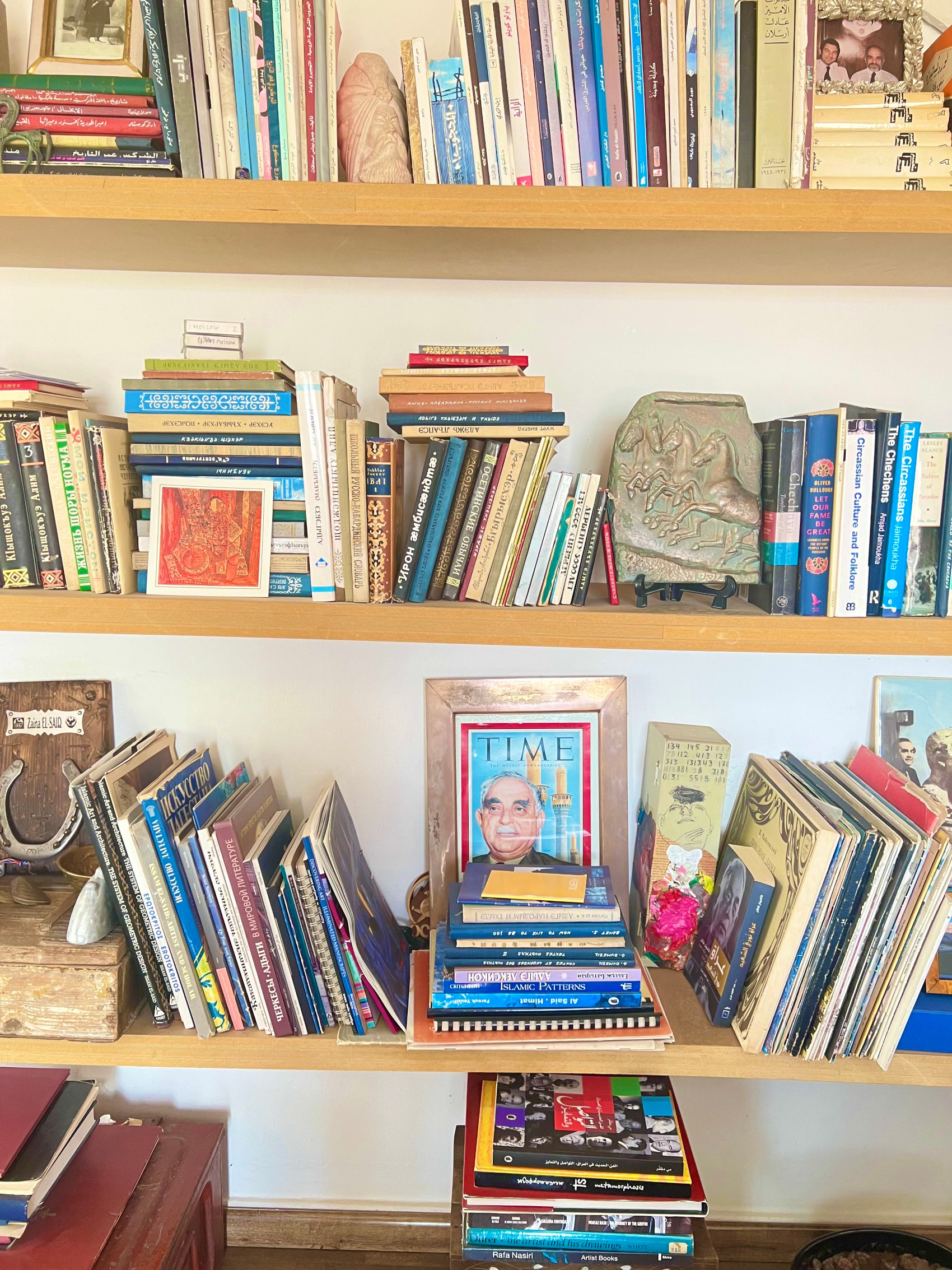
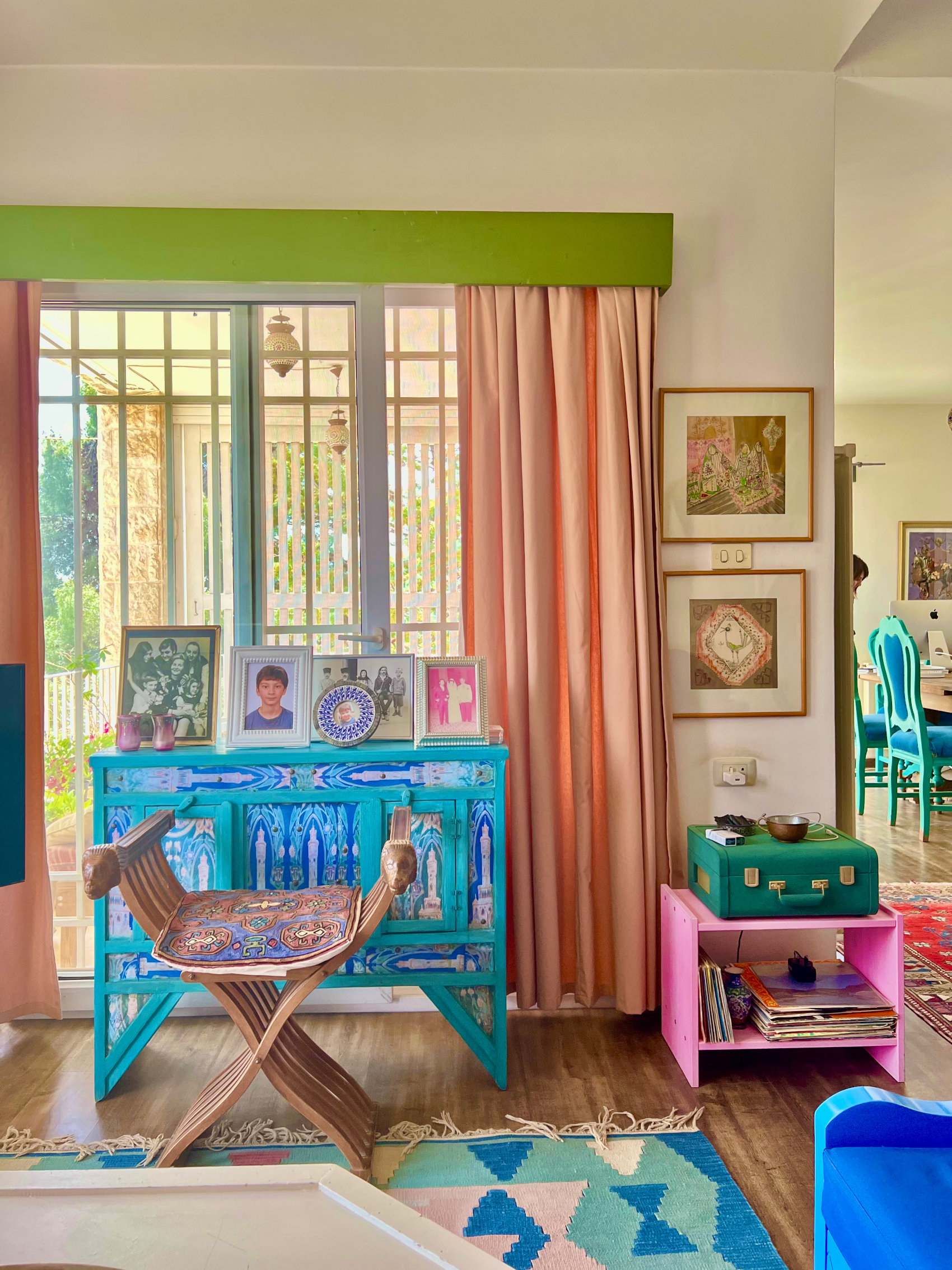
Zaina’s life motto?
live day by day. I try as much as I can. I try not to think of things as much as possible. It’s hard sometimes, but I think you should try to take things like a dream.
Zaina are you today the woman you wanted to become?
To a certain extent, yes. I, I’m very comfortable with myself. I’m very comfortable with the way I think, with the way I deal with things. So I think, yes, to a certain extent.
Who is your role model?
My mother, definitely. My parents, both of them actually and my grandparents for sure. I admire their discipline and acceptance. My mother is very accepting and she’s extremely generous. That I learned from her and from my father discipline and love.
What are Zaina’s dreams for the future?
There are so many, I’m working on a new series of lenticular art? It’s like you see an image from a front view and then it changes from the side. So I’m in the process of creating a series of these artworks that I think are going to be brilliant.
If you met your younger self today, what would you tell her?
I would tell her not go to university at 17 and not to rush any decision. Take your time in making a decision.
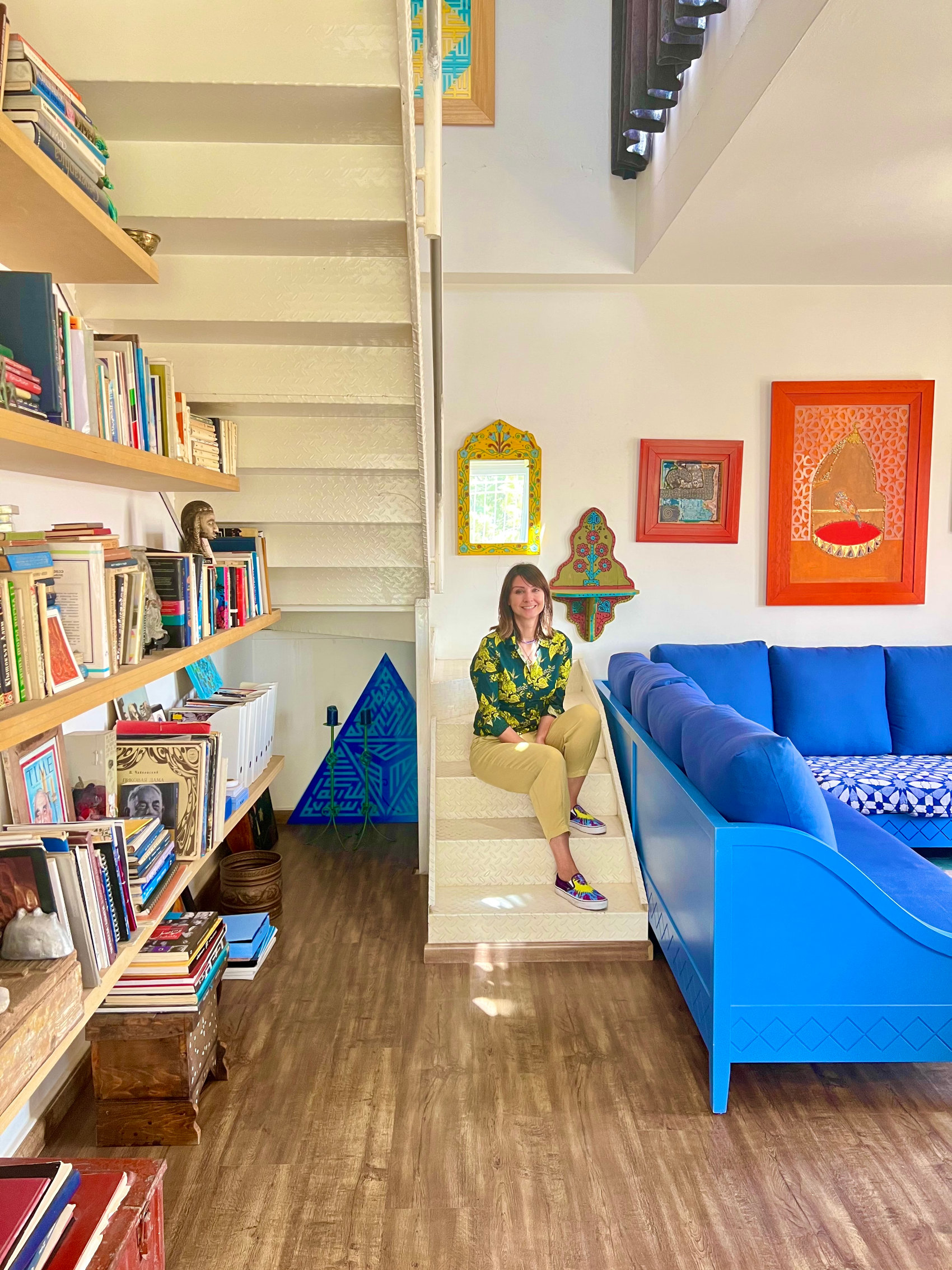

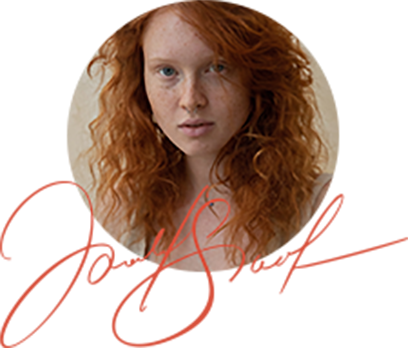
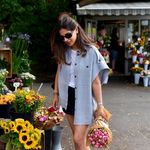

Fatma Ben Debba
Love it ❤️ so enriching!!!